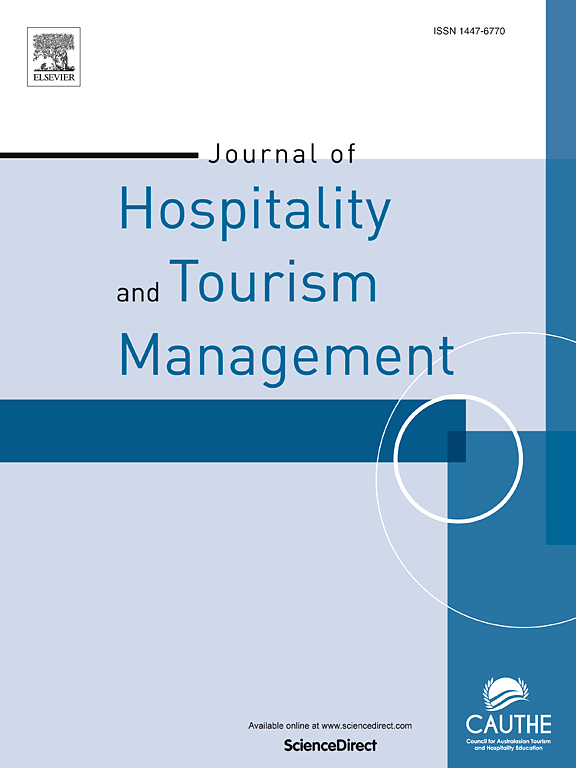Spark aspirations: The role of mental imagery and place memories in virtual communist heritage
IF 7.6
1区 管理学
Q1 HOSPITALITY, LEISURE, SPORT & TOURISM
引用次数: 0
Abstract
The integration of digital technology into tourism has increased significantly, particularly in the context of communist heritage sites. Drawing on mental imagery theory, this study aims to demonstrate how destinations associated with communist heritage, often perceived as offering low expected enjoyment, can leverage digital technology to transmit place memory and spark pretrip awe, thus motivating tourists to visit. Taking the Jinggangshan Revolutionary Museum's online VR exhibition as an example, this study has three key objectives: (1) to analyse the mental imagery evoked by virtual tours of low-expectational enjoyment sites, such as 3D virtual tours of communist heritage sites; (2) to investigate the influence of virtual communist heritage tours on pretravel cognition and emotions, specifically reconstructing place memory and stimulating awe; and (3) to study causal recipes for stimulating high/low travel intention. Using symmetric (partial least squares structural equation modelling, PLS-SEM) and asymmetric methods (fuzzy set qualitative comparative analysis, fsQCA), this study seeks to understand the dynamics between virtual tours and the inclination to visit fewer enticing sites. These findings could provide insights into how virtual experiences can bridge the psychological gap and reshape tourists' cognition and emotions, ultimately enhancing the appeal of and visitor intentions towards communist heritage tourism.
求助全文
约1分钟内获得全文
求助全文
来源期刊
CiteScore
13.30
自引率
8.40%
发文量
177
审稿时长
45 days
期刊介绍:
Journal Name: Journal of Hospitality and Tourism Management
Affiliation: Official journal of CAUTHE (Council for Australasian Tourism and Hospitality Education Inc.)
Scope:
Broad range of topics including:
Tourism and travel management
Leisure and recreation studies
Emerging field of event management
Content:
Contains both theoretical and applied research papers
Encourages submission of results of collaborative research between academia and industry.

 求助内容:
求助内容: 应助结果提醒方式:
应助结果提醒方式:


